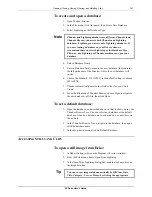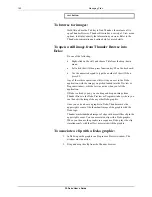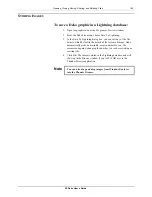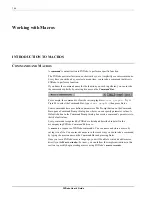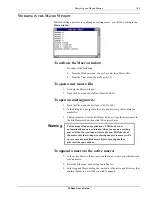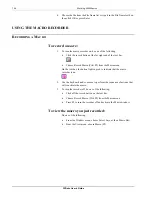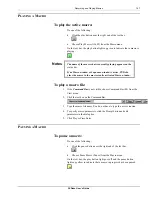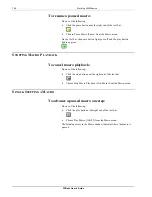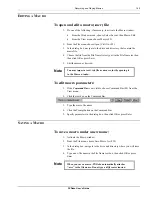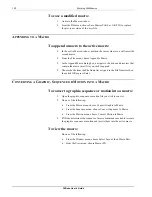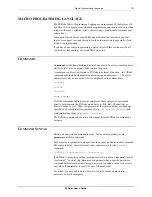
Macro Programming Language
155
FXDeko User’s Guide
V
ARIABLES
In FXDeko, a
variable
name can include any upper or lower case alphanumeric
character as well as the special character, underline (_). The first character is
always a dollar sign ($), and the character immediately after the dollar sign cannot
be a number.
To make macros easier to read and understand, it’s a good idea to use variable
names that are readily associated with the values they represent. For example, it’s
easy to guess what these variables are used for:
$age
$name
$phone
You do not explicitly declare a variable’s data type; the data type is determined
when a value is assigned to the variable.
These examples illustrate how variable assignment determines data type:
$i = 1
Integer
$XY = 3.5
Real
$message = "Goodbye Cruel World"
String
If you try to use an uninitialized variable, FXDeko stops executing the command
or macro and displays an error prompt.
A variable may be an element of an
array
, in which case its name is the name of
the array followed by a subscript that identifies its location in the array. A
subscript must be an integer or an expression that returns an integer.
For example, an array named
$table
might include these elements:
$table[3]
$table[42]
$table[$count+1]
$table[9999]
FXDeko allocates array elements as needed. The subscripted variables in the
above example will occupy only four variable slots, not ten thousand.
By default, most variables are
local variables.
A local variable is allocated
temporarily during macro playback, then deleted automatically when the macro
stops. One macro cannot reference a second macro’s local variables, even if the
second macro is a subroutine of the first.
Global variables
must be declared with the
global
command, and can be
shared among multiple macros. Once declared, a global variable remains until you
either delete it by using the
free
command, or exit FXDeko.
FXDeko has a set of built-in global variables, known as
system variables
, which
provide information about the state of your system. System variables are
preceded by the at-sign symbol (
@
), and are often referred to as
at-sign
variables
.
Some system variables are read-only; you cannot change their values. Examples
of read-only system variables are
@lines
and
@dots
, which describe the
current video standard, and the pre-defined colors
@red
,
@blue
and
@green
.
Содержание FXDEKO
Страница 8: ......
Страница 130: ......
Страница 165: ...Macro Programming Language 165 FXDeko User s Guide b integer a 5 b equals 13...
Страница 175: ......
Страница 210: ......

